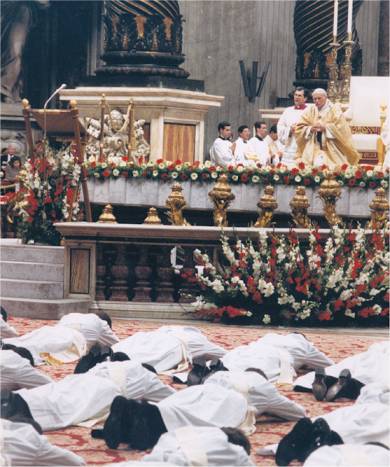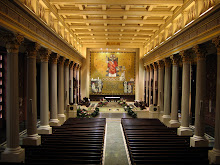Mike Aquilina, patristic scholar in his own right (and author of a fantastic book i was recently given by a friend on ancient signs and symbols) interviews sociologist Rodney Stark on the rise of the Early Church from a sociological point of view. He makes some interesting claims, some of which follow. Read the entire interview here.
I sometimes get asked why I am fascinated with the Early Church. The simple answer is that I feel we are re-entering a period very similar to what happened then, with respect to Church-State relations. The more we know of how the Early Church dealt with the adversity faced, the better we can face the similar adversity.
You say that Christianity succeeded in part because of its high moral standards. Today, however, many churches are lowering the bar to make religion more popular. How would you analyze their efforts?
RS: They're death wishes. People value religion on the basis of cost, and they don't value the cheapest ones the most. Religions that ask nothing get nothing. You've got a choice: you can be a church or a country club. If you're going to be a church, you'd better offer religion on Sunday. If you're not, you'd better build a golf course, because you're not going to get away with being a country club with no golf course. That's what happened to the Episcopalians, Methodists, Congregationalists, Unitarians and, indeed, to some sectors of Catholicism.
![]()
Are Christians waking up to that?
RS: Most denominations are tightening up, and the reason is they're running out of members. The young clergy have religious motives that their elders didn't necessarily share. It was a much better job forty years ago. If you look at Catholic religious orders, you'll find that some are recovering and some new ones are growing. The only ones growing are those that have joint living arrangements instead of everybody living out on their own; that have organized worship; and that have some distinctive dress, so you can recognize them on the street as not just your average social worker or schoolteacher. That's a QED. If religion gets too cheap, nobody pays the price.
Here's an example: Do you really need to have hamburgers on Friday? Getting rid of meatless Fridays was a dreadful error the Church made. When I was a kid -- in a town that was 40 percent Catholic and 60 percent Protestant -- meatless Friday was an enormously important cultural marker. Every Friday reminded you who was like you and who wasn't like you -- and it did this in a way that wasn't harmful to either side.
Our high-school football games were always played on Friday nights. After the game, you took your girlfriend to the drive-in restaurant. And, around midnight, you could hear the Catholic kids count down to twelve and then shout, "Hamburger!" And everybody would laugh. It was a little social ritual that left Catholics with an enormous sense of solidarity. We thought hamburgers were the big denominational difference.
![]()
What do you make of the current pope?
RS: Here's someone who knows what it was like for the first Christians -- who knows what it is to fight for his Church's life. If an Italian bishop wants to know how many Catholics are in his diocese, he looks in the census books for the number of people who live nearby. A bishop in Communist Poland knew that the census and the number of Catholics were not the same number, and that it's important to get yourself some Catholics if you want to have a Church. Whether you agree with him or you don't, it's very clear this pope is a holy man, that he's on a mission.










3 comments:
You're very kind, Father. Thanks for the notice!
One of the thousands of reasons we keep him around...
Mike's continuing contributions to the Church are a treasure that deserves more tapping.
Here's an example: Do you really need to have hamburgers on Friday? Getting rid of meatless Fridays was a dreadful error the Church made.
Church historian Eamon Duffy, hardly a traditionalist or conservative, said relaxing Friday abstinence rules was the worst decision made by the Church in the postconciliar period. It undermined solidarity precisely when we needed it.
Post a Comment